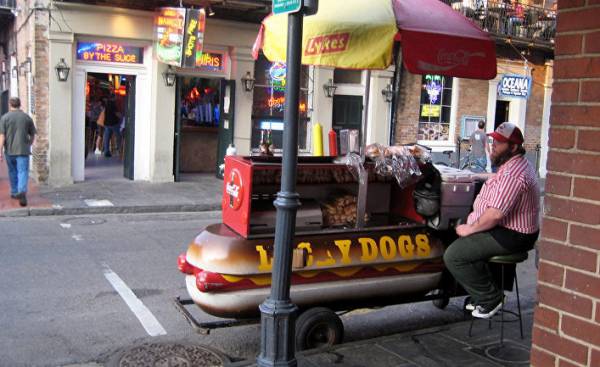
Every politician says he is for jobs. But how can you be for jobs if you are opposed to the business? And you can’t be Pro-business, if you are opposed to providing capital to those who create jobs. But it is in such a paradoxical situation was in 2010, Congress, when it extended the Law on reforming wall street and consumer protection the Dodd — Frank on small banks and credit unions. The law was the killer of loans, jobs and a disaster for these very important organizations.
The Dodd — Frank was to prevent another banking crisis like the one that erupted in 2008. To do this, he strengthened Federal measures of state regulation of Finance. Perhaps this law makes sense for very large banks. Maybe not. That makes absolutely no sense, it is the beating of small local banks (we are talking about community Bank of any state, registered by the authorities of this state and operating within one to three districts — approx. TRANS.) that have absolutely nothing to do with the formation of the 2008 crisis.
When the head of the Federal reserve system of the USA Janet Yellen (Janet Yellen) February 14, testified at a Senate banking Committee, I asked her the following question: “What is not made small, local banks in 2008?” She said, “Well, small local banks didn’t cause the financial crisis.”
However, the Dodd — Frank strangling small banks, those from the provinces. The law on Federal reserve system of 1913 consists of 13 pages. The glass — Steagall Act was 37 pages. The Dodd — Frank consists of 2,300 pages. But even more striking is that soon it will add about 22 thousand pages. For this reason, many small local banks have ceased to exist, and the surviving banks have increased costs, dropped profits, and fewer opportunities to issue consumer loans and loans to small businesses. All this thanks to the heavy hand of the government.
Small credit organizations that make up the counterweight to wall Street, should not have to pay for the sins of others. So I introduced a bill called the Law on the reform of the Finance of the local economy that could benefit these organizations in the face of local banks and credit unions with total assets of less than $ 10 billion from Dodd — Frank. Serving community financial institutions will be able to return to what they do best — contribute to the growth of the local economy.
These banks are very much in need of mitigation of regulatory requirements. In 2015, the Federal reserve Bank of St. Louis concluded that the costs from the requirements of this law are at community banks $ 4.5 billion annually. It is a powerful blow to the gut. The head of the new Orleans company Eustis Mortgage Alan Novotny (Novotny Alan) said that before the introduction of Dodd — Frank, the cost of issuing the loan was two thousand dollars. Now they amount to four thousand dollars.
After the introduction of the law in the United States have disappeared over 1700 banks. The costs of regulatory measures has forced small banks to self-destruct or merge with larger banks. And this leads to loss of jobs in the province. Reduced volumes of crediting of population and business, since the share of small local banks with assets of less than $ 10 billion account for 48% of loans to small businesses, 16% of mortgage lending, 44% of loans to buy farmland, 43% of loans to farmers and 35% of loans for commercial real estate.
The forcible consolidation of this segment of the banking sector led to concentration of assets in the accounting for the larger banks. It has been partly responsible for the disaster of 2008, the recurrence of which should prevent the Dodd — Frank.
My bill will help to survive 785 5 credit unions and 5 461 community Bank that operate in our country. They don’t have to reduce the volume of products and services, channeling funds for the implementation of the requirements of the law. They no longer will need to do the math in risk assessment, and their skills in this area they will be able to send to other tasks. They can focus on providing traditional banking services familiar to customers, as these banks will be able to take local deposits and lend to local borrowers for ability to pay which they will be able to follow.
Small local banks are based on relationships with customers. They do not issue high-risk loans and not use derivatives for speculation. In most of these banks less than 100 employees. Those regulations, which they need, and the risks to which they are going differ from banks with a market capitalization of $ 700 billion.
Small local banks need certain control measures that ensure their stability and security. But even after my bill becomes law, banks will still operate under a strict regulatory schemes established dozens of appropriate norms of the Federal legislation. The Law on the banking secrecy act, the electronic transfer system of payments, the Law on the reliability of information in lending, the Law on equal access to credit and many others. These banks will remain under the supervision of the Federal reserve, the Comptroller of the currency, Federal Corporation on insurance of contributions, and National management of credit unions.
But these small local banks need relief from the Dodd — Frank with its destabilizing consequences. And the Law on the reform of the Finance of the local economy is a step in this direction.
John Kennedy, the Republican Senator from Louisiana.







